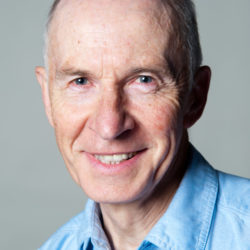
Andrew Sayer is Professor of Social Theory and Political Economy at Lancaster University, UK. His two main interests are firstly social theory and political economy, and secondly philosophical issues in social science. His early work in the seventies and eighties was devoted to the development of radical political economic theory through the study of uneven development, and urban and regional change. Sayer published both theoretical and empirical research in this field, including The New Social Economy: Reworking the Division of Labor (with R.A.Walker, Blackwell, 1992), and Microcircuits of Capital (with Kevin Morgan, Polity, 1988). He then worked on political economic theory itself, attempting to reconstruct it in the wake of post-Marxism and the rise of neoliberalism (Radical Political Economy: A Critique, Blackwell, 1995). On the philosophical/methodological side, he has a longstanding interest in critical realism as a philosophy of and for the social sciences. This is represented in his books Method in Social Science (Routledge 1992) and Realism and Social Science (Sage, 2000).
In the latter part of the 90s, Sayer began seeking new sources for developing critiques of economic aspects of contemporary society. This began with the need to take the cultural dimensions of economic phenomena more seriously (Culture and Economy after the Cultural Turn, edited with L.J.Ray, Sage, 1999) and led to an interest in Pierre Bourdieu’s analysis of economic and cultural capital and the reproduction of inequalities. He developed this last theme in the book The Moral Significance of Class (Cambridge University Press, 2005). This analyses the ethical aspects of people’s experience of class inequalities – how it affects not only people’s material wealth and opportunities but how people value one another and themselves, and hence their self-respect. It seeks to explain why it is common for people to be ‘in denial’ about class despite its continuing influence on their life chances. It uses not only social theory but ideas from moral philosophy to reinterpret empirical studies of how class is lived. Sayer adds, “it might have been subtitled ‘Bourdieu with the ethics put back in'”.
The search for standpoints from which critiques of contemporary social and economic arrangements can be made has led him to take an interest in ethics and morality in everyday life. His book Why Things Matter to People: Social Science, Values and Ethical Life (2011, Cambridge University Press) explores social science’s difficulties in acknowledging and understanding people’s evaluative or normative orientation to their social worlds – or in simple terms, why anything matters to them. It attributes these problems to the common modernist belief that values are purely subjective, or merely conventional, and beyond the scope of reason. This gives much social research an alienated and alienating character, that cannot grasp why people care about anything. It includes chapters on the weakening of ‘critique’ in social science, what social science can learn from ethical theories, on dignity in everyday life, on the capabilities approach to conceptions of human flourishing, and the limits on normative thinking in social science. It tries to bring together social scientific and ethical thinking through accessible, everyday examples.
Sayer’s latest book is Why We Can’t Afford the Rich (Policy Press, 2014; U of Chicago, April 2015). It is motivated by the dramatic expansion of the economic and political power of the rich and super-rich over the last four decades. It argues that this has come about through increased opportunities for wealth extraction by the rich, which allows them to dominate politics too. It also argues that the concentration of wealth at the top produces wasteful consumption and distorts economies, reducing their ability to meet basic needs, and that the financial interests of the rich in continued growth and in the extraction of fossil fuels threatens the planet.